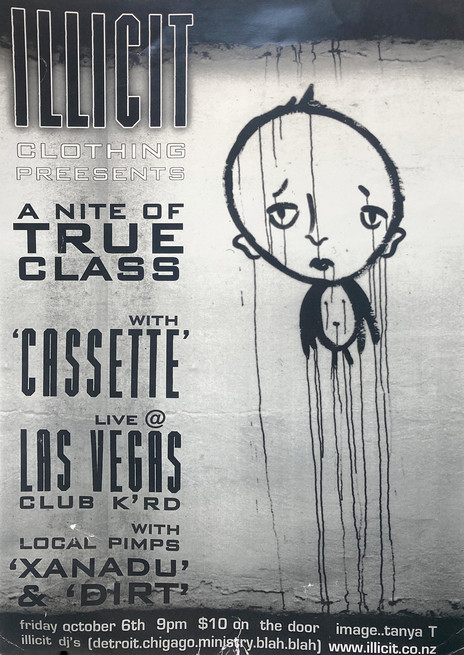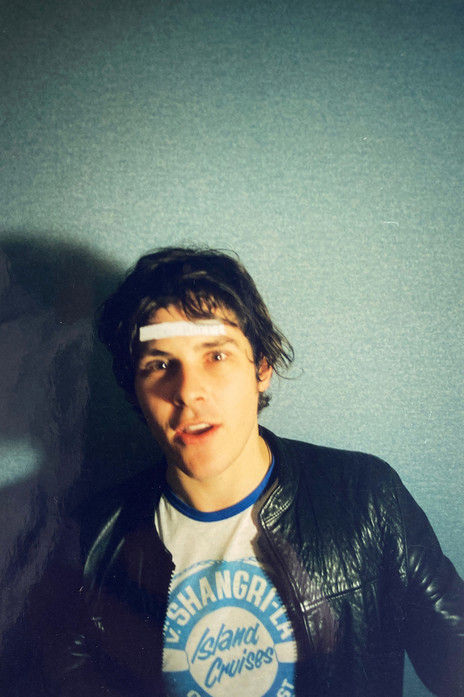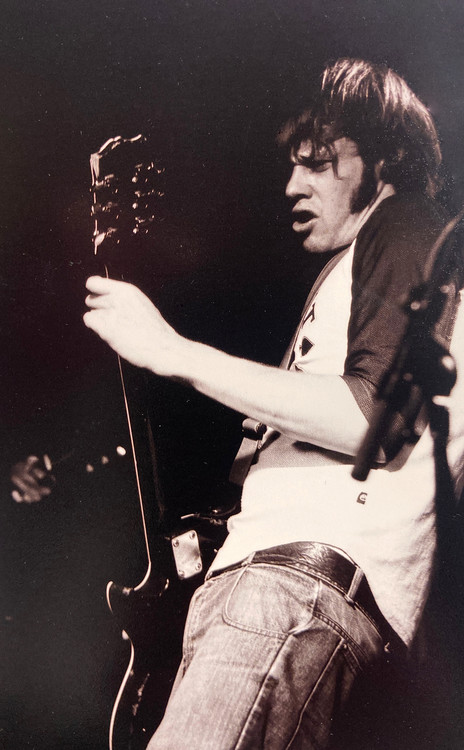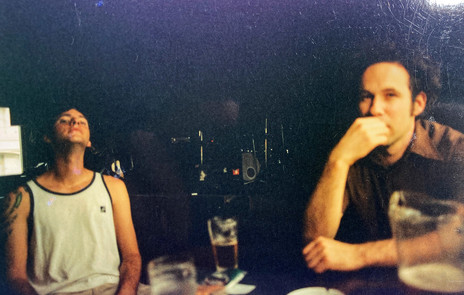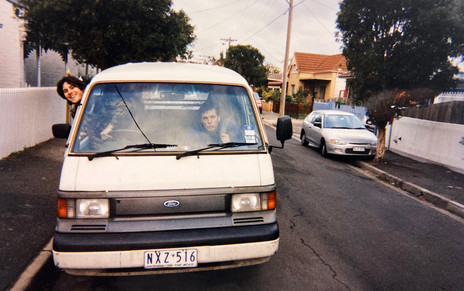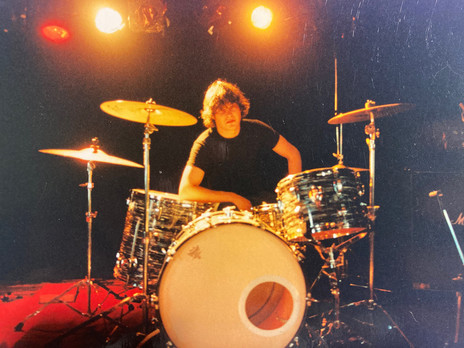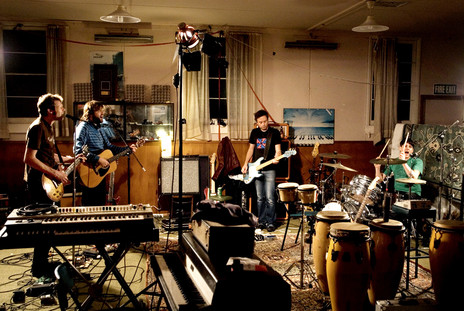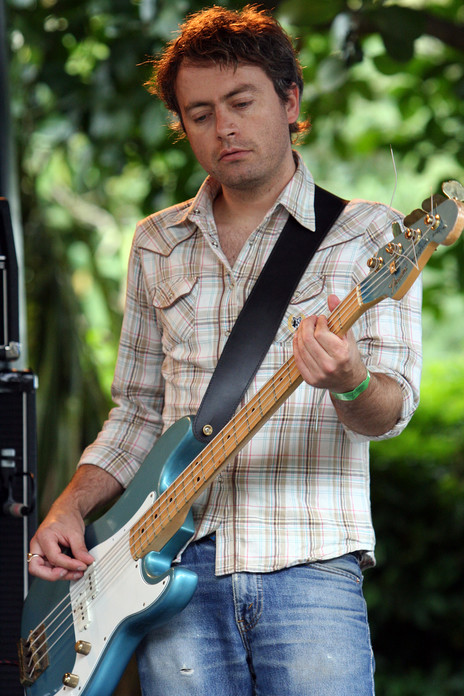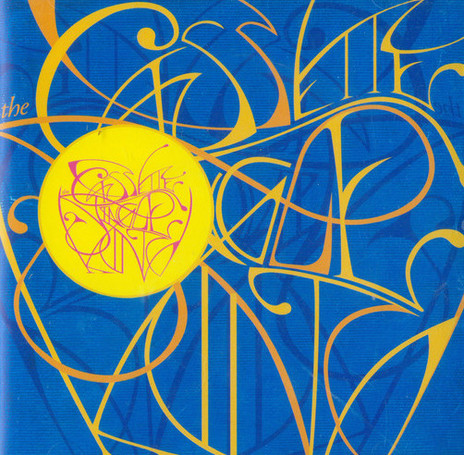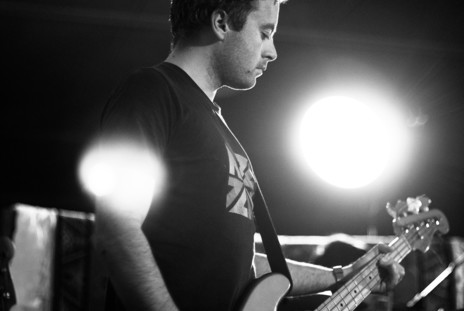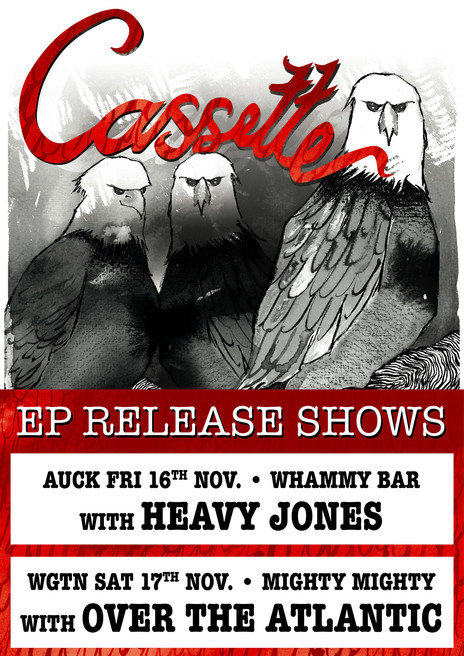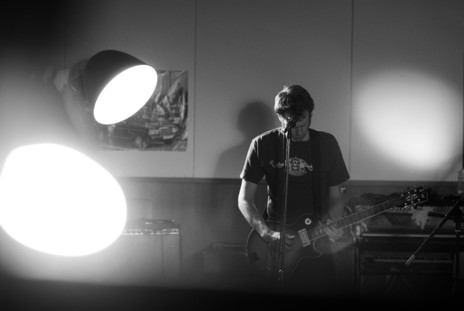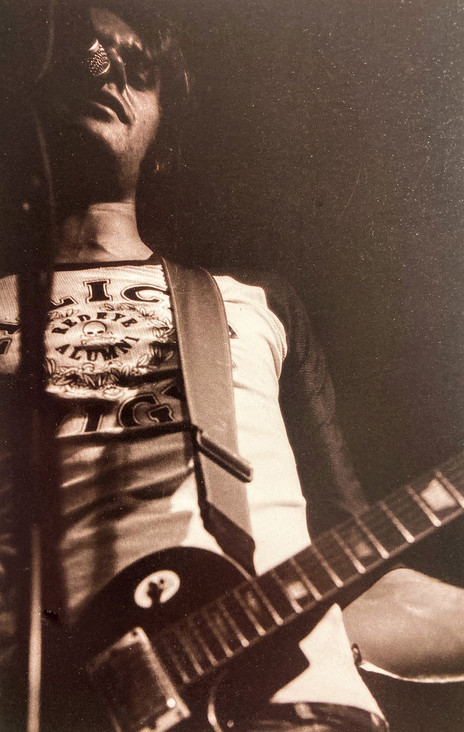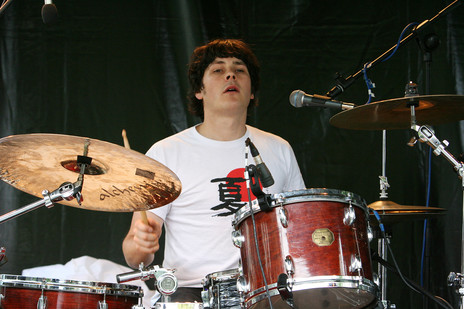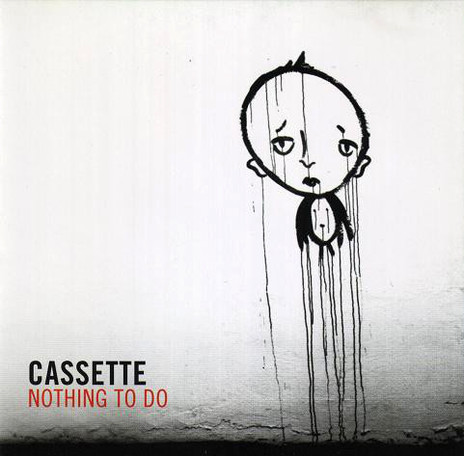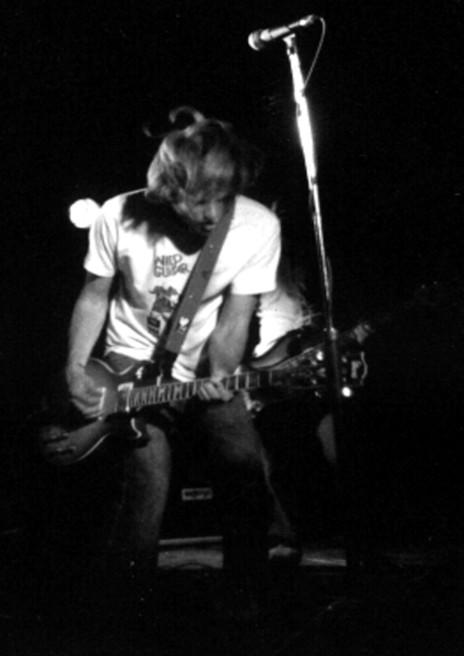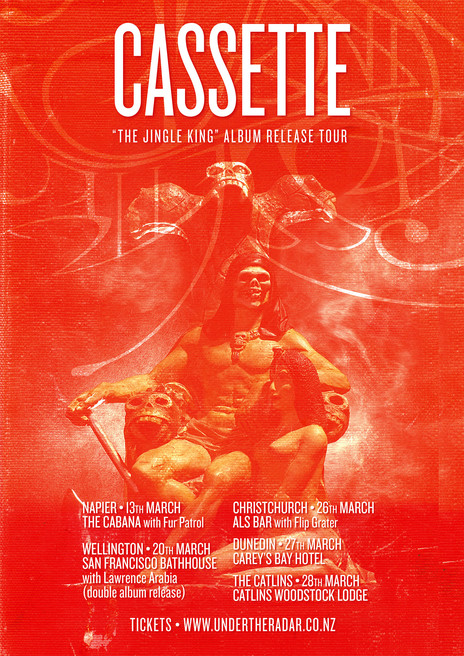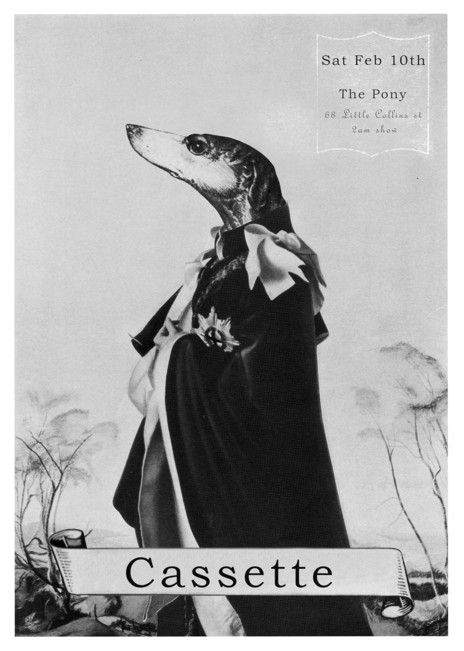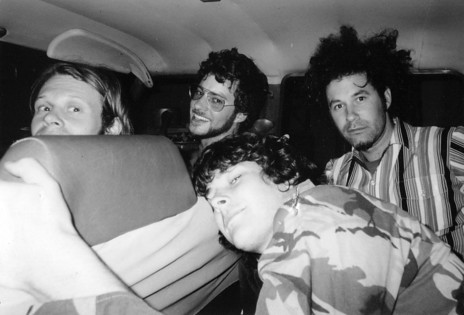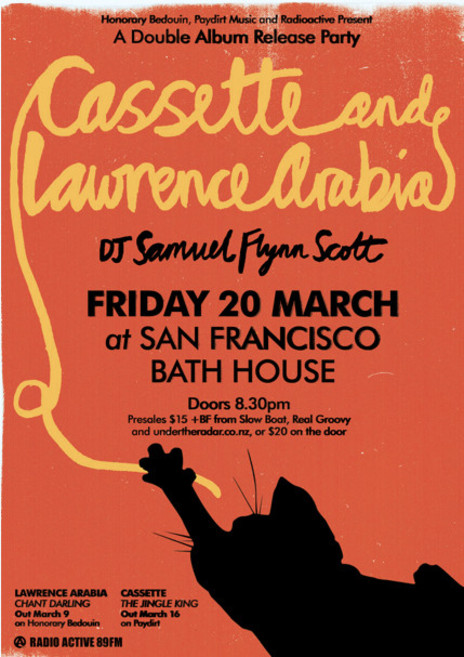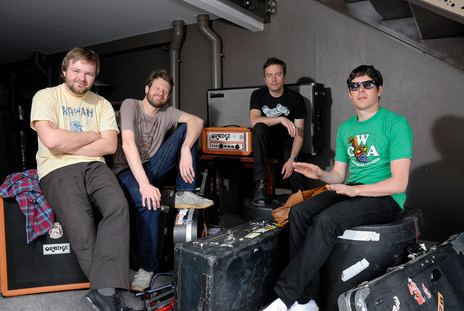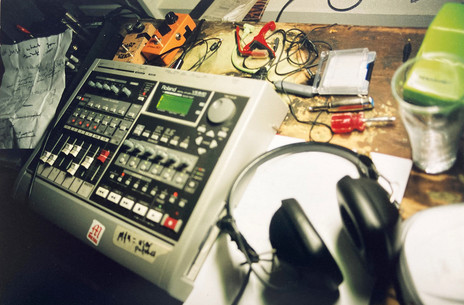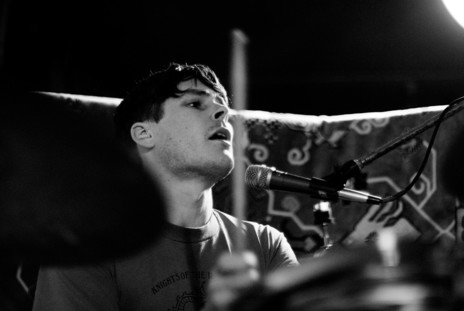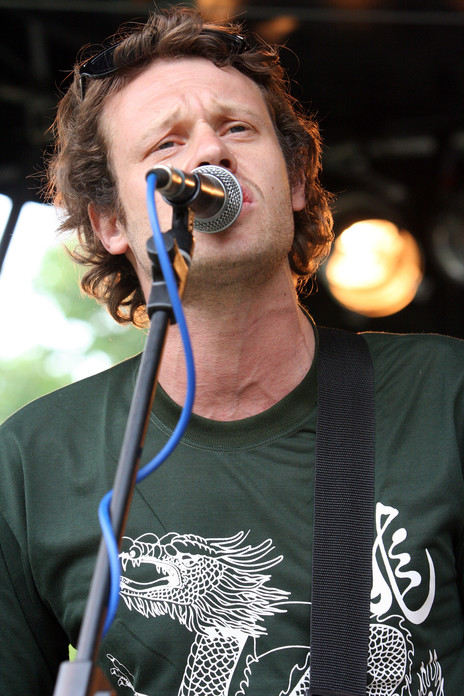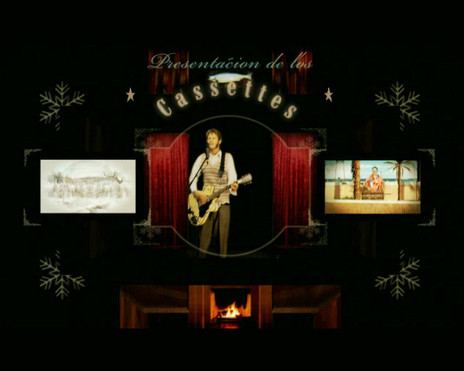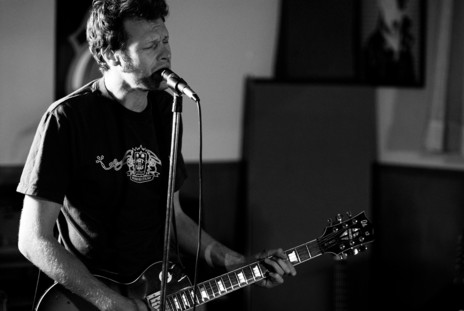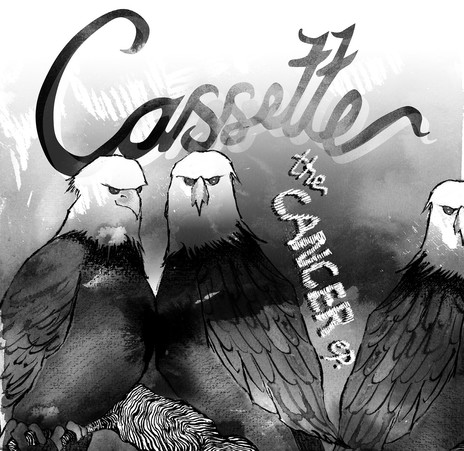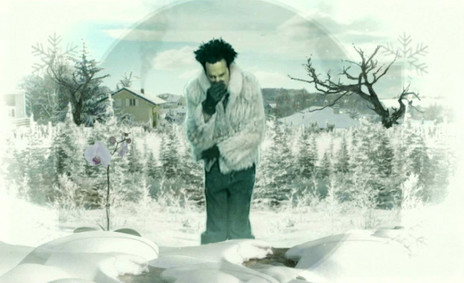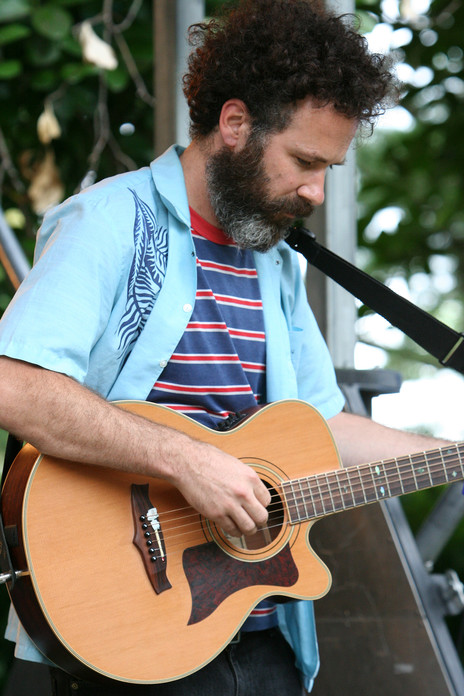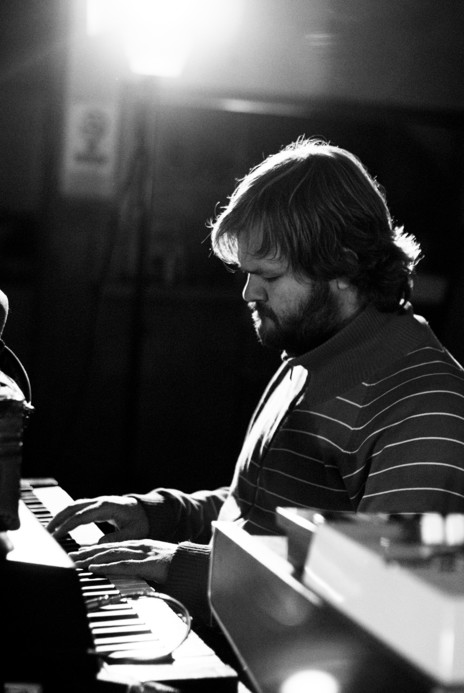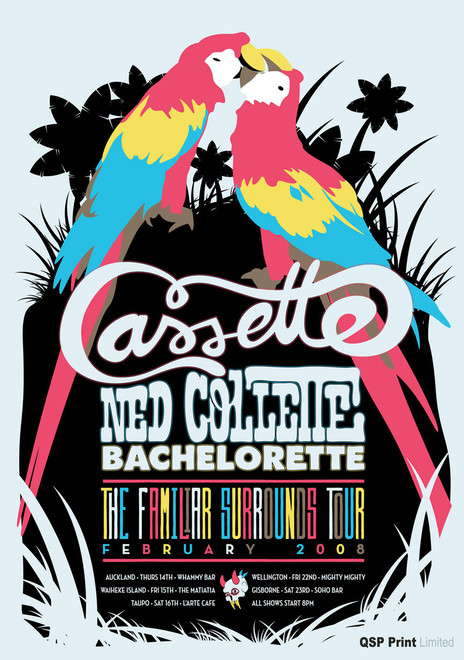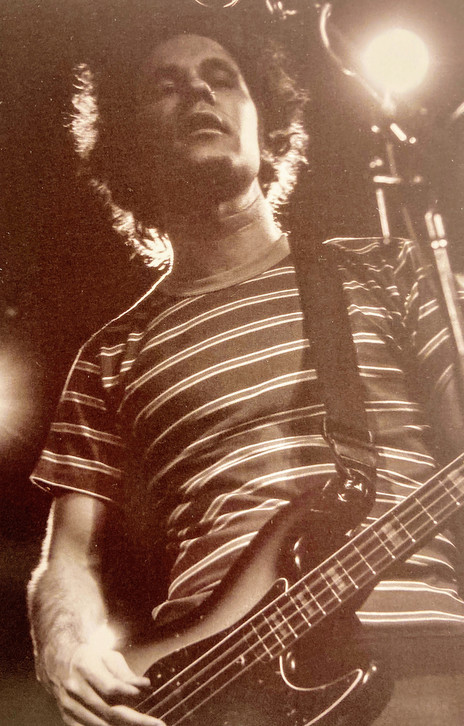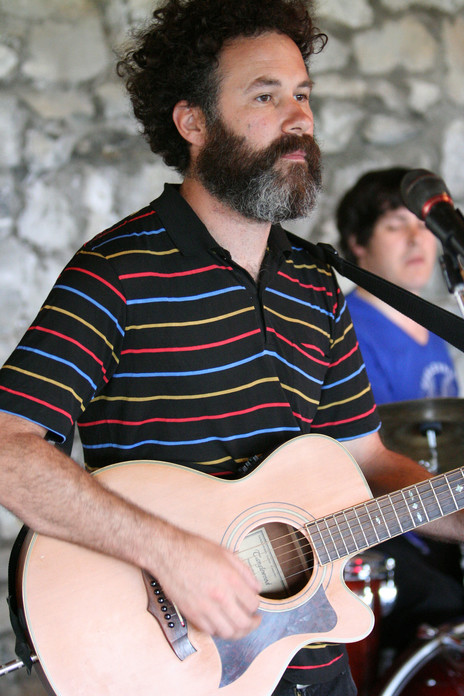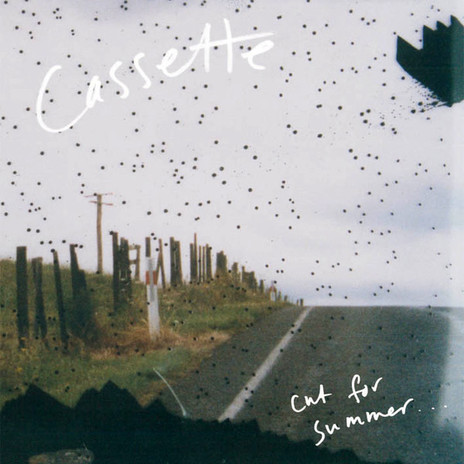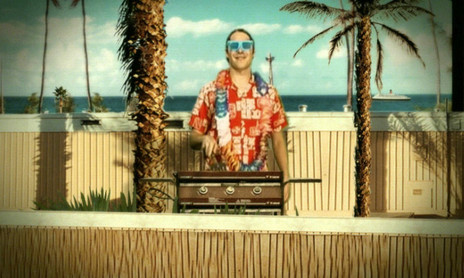Watson’s first band was high-school band Funk Mutha. The band’s name was a bit of a misrepresentation; they were far more Jesus Lizard and Birthday Party than funk. They released one EP and toured with Head Like A Hole (HLAH), which Tom joined in 1995. Funk Mutha wrote the song ‘Over the Top’ which features on HLAH’s Juicy Lucy EP.
Prior to joining HLAH, Watson already had connections to the band, having been in Baconfoot from around 1993 with HLAH’s Nigel Regan and drummer Ben Hubbard of Funk Mutha. Their home base was the Stench Room in Willis Street, Wellington, where HLAH recorded. Craig Terris joined Baconfoot after Hubbard departed, and the band remained active in parallel to HLAH until the latter’s initial breakup in 2000. Watson and Terris sparked, so when Baconfoot and HLAH both finished, Cassette was born.
Craig Terris was also in Hell Is Other People with Matt Barnes and Peter Gray, who formed in 1995 from, in the words of drummer Matt Barnes, “the seedy depths of a tiny shithole in Newtown” where all three lived together. The name was taken from a Jean-Paul Sartre text on existentialism and reflected the psychological effects of their living conditions at the time. Hell Is Other People disbanded in 2000.
“Cassette was a departure from other bands I’d played in,” says Watson. “It was mostly song-driven rather than riff-driven. Acoustic guitars and vocal harmonies were a point of difference at that time. To seal the deal Craig found pedal-steel guitarist Glen Ross Campbell in Auckland [not the Glen Campbell of S.P.U.D.] who put down some beautiful work on our first EP, and pretty much steered us straight into the country-rock vibe.”
“Acoustic guitars and vocal harmonies were a point of difference at that time” – Tom Watson
Bassist Dave Fraser’s girlfriend had been living with Terris and Watson up in Auckland, so he migrated north from Wellington, and the trio gelled. Fraser says, “I remember hearing the bones of ‘Don’t Let Anyone’ for the first time, being blown away and thinking it was exactly the sort of music I wanted to be playing.” Fraser played bass and keys, sprinkled some vocals here and there, and contributed a number of songs.
The former Wellingtonians’ new band made an impression on their new hometown of Auckland. “We seemed to be on people’s radar generally,” says Watson, “played quite a few shows at the Kings Arms – it seemed to be a time of classic Kiwi indie music, high-octane garage rock and punk bands. I can’t say that there were many other bands with the same vibe as us exactly – maybe The Vietnam War? I remember the phrase ‘considerable groundswell’ being applied to our progress at the time [laughs]. We played between Auckland and Wellington. I think we enjoyed the fact that we were doing something a bit different.”
Cassette’s first release was the cleverly titled Emo EP, released on their own label Paydirt Music, and distributed locally by Global Routes. It began as a bedroom recording, until Watson purchased a digital 8-track – “all the rage at the time”. Nick Roughan mixed the EP, which stamped the band’s initial sound and vibe, and was paid for with a babysitting contra deal.
The Classic Comedy Bar in Auckland was one of Watson’s favourite places to play. “We did our EP release gig there, and supported Voom at their Hello, Are You There? album release gig. Good times!”
Cassette entered an agreement with Australia’s Infidelity Records; the Emo EP was retitled Nothing To Do and released in Australia in March 2003. It was well-received both here and in Australia, and as Watson wryly remarks, “People still say it’s the best one. Dang it. I don’t think anyone saw that coming, me included.”
Following its success in Australia, Watson says, “I think we moved to Melbourne out of blind optimism, which seemed to be working up until that point. We’re definitely not the first band who’s decided that their success could simply be multiplied by the increased population of a territory.”
Melbourne started well. The trio hooked up with Paul Trigg, who was in Wellington bands Letterbox Lambs, and Poultice with Watson. He followed the band’s career but wasn’t able to join until they reached Melbourne. Fraser says, “When Paul came along on guitar it just got even better. We were all into songwriting and respectful of each other’s ideas, so most songs would end up filtered through the group brain.” Watson wrote most of Cassette’s songs, but the others were welcome to contribute their own.
In Melbourne the band vehicle was a Badly spray-painted Holden Kingswood named Yertel the Turtle.
Trigg also provided the band’s unique method of transportation in Melbourne – a badly spray-painted army-green Holden Kingswood named Yertel the Turtle, with a sun visor that gave off “more of a grandpa vibe than being even vaguely cool,” says Trigg. “We could fit our entire backline in – and on – that car, with us all on the bench seat in front. It must have looked hilarious.”
In Melbourne, Cassette used their publishing advance to buy and hire recording equipment with the aim of setting up a permanent studio to record their debut album, Cut For Summer.
Watson describes the process: “The record was tracked at a mansion in Mount Macedon by David Wernham, who did a stunning job. After that I basically chased my tail for three years trying to get it finished. I was just out of my depth, and I wanted the record to be perfect – this was my first computer, with too many options, too many plugins.” Despite the challenges, the band got it all tracked and overdubbed, and back in New Zealand took it to Nick Roughan to finish. “And he did a great job.”
Cut For Summer was released in July 2006, but only in New Zealand, on Tardus Music, as the band had parted ways with Infidelity. “It’s got some great material,” says Watson, with some songs “kinda hung over from the 90s rock days. I think at the time I was looking for that sort of eclecticism on a record, in the spirit of Sebadoh, Voom or Sparklehorse – it does jump around a bit.”
Eventually Fraser moved to the UK, where he still lives, and the band began to lose its momentum. “We started out pretty well,” Watson says of Australia, “but we lost our focus through disappointments and disillusion. Well, I lost mine. Going to Australia was potentially a great move for Cassette, there were certainly opportunities, and we could have made more of them, with the benefit of hindsight. But I don’t think I’d change a thing. I love my life here in Wellington, in New Zealand.”
Terris moved back to Wellington and began playing with some of the Phoenix Foundation crew. “A great move on his part,” says Watson. Watson stayed, and he and Trigg did the acoustic circuit around Melbourne, but the momentum had been lost, and Watson returned to Wellington. Paul Trigg remained in Australia.
Watson says, “Coming back to Wellington was great from the perspective of being involved with music again. I got to meet the people who’d been the music scene since I left for Australia – and I still enjoy playing music with a lot of those people.”
“We sort of ended up combining the Luke Buda Band with Cassette” – Tom Watson
Once both Terris and Watson were home, they teamed up with Luke Buda (The Phoenix Foundation) and Andrew Bain (Fur Patrol). “We sort of ended up combining the Luke Buda Band with Cassette and played a bunch of shows like that. It was a great band, and I really loved playing Luke’s tunes.” The collective toured alongside Bachelorette, Ned Collette, and Lawrence Arabia.
Work had begun on The Cancer EP (2008) in Australia. Fraser was in the UK at that stage, but ‘Familiar Surrounds’ was one of his songs, and he had recorded parts for it before he left. For the recording process the band used the computer and recording interface they’d used for the Cut For Summer album. HDU’s Constantine “Dino” Karlis recorded live takes for the album (“They sounded amazing,” says Watson). It was mixed by Jesse Booher of Looma, and Watson.
The EP’s press release says, “The Cancer EP was originally intended to be a glorified single – a stop gap between their ‘06 album Cut For Summer and the forthcoming album – however, it has ended up being a collection of the band’s five best songs at the time.” The release party was at Auckland’s Whammy Bar, with support from Heavy Jones.
The EP did well in Aotearoa but didn’t get an Australian release. “I promoted that record myself, and was crying all the way,” says Watson. “Man, that is a dispiriting job ... we did get some chart action on the student radio network – I think ‘Cancer’ was No.1 on 95bFM for a couple of weeks, so that felt good.”
Cassette’s final recorded outing was The Jingle King album, mixed by Lee Prebble at The Surgery. Prebble did the bulk of mixing and tracking, with Watson and Terris contributing overdubs. Next step was taking it to The Lab in Auckland, “where Jol Mulholland tracked some awesome guitar”, and Sandy Mill provided vocals (she’d previously sung on the Emo EP), and Jesse Booher engineered a couple of tracks.
Released in 2009, The Jingle King sold relatively well. “We hired Charlotte Ryan [now Music 101 host on RNZ] to promote it and she did a fantastic job.”
Under The Radar said of the album, “Cassette have come a long way it seems, from simple alt-country beginnings to what can only be described as lush layers of country-skewed psych pop.”
“Touring that record was very hard, I think that we were at a low ebb and had maybe fallen out of touch with people who actually attend gigs,” says Watson. He adds, “Lee did a fantastic job on The Jingle King and I’m very proud of it.”
Following the release of ‘The Jingle King’ album, Cassette felt the band had reached its natural conclusion.
Following the release of The Jingle King, the Cassette crew felt the band had reached its natural conclusion. For all of them the impetus to make Cassette’s particular style of music had waned. Terris and Watson moved on to overseas stints with, respectively, Bachelorette and Lawrence Arabia.
Cassette were a staple part of New Zealand and Australian indie rock scenes right throughout the 2000s and created a body of work that any band would be proud of.
Watson recalls that they played some great shows. “Some of the most notable gigs we got were playing with Sonic Youth and J. Mascis in Sydney, and Black Rebel Motorcycle Club in Melbourne.”
Fraser says, “The stuff that mostly sticks with me being in Cassette, whether it was in Auckland or Melbourne, was all the good people that were around at the time, other musicians and bands, or friends just doing their thing. It felt like our gigs were some kind of a celebration of that. Also an abundance of good humour always seemed to prevail over any of the graft and bullshit. Though I do remember the band being chastised by Chris Knox for not being able to stop laughing (accidentally too stoned) mid-set at a gig supporting the Tall Dwarfs.”
These days Tom Watson is a parent and a qualified early-childhood teacher. Post-Cassette he joined Lawrence Arabia’s band and “spent a magical year touring around the world with those guys – a lifetime dream realised.” He still plays with them.
Watson has also been in Terror Of The Deep and Fly My Pretties, and made a childrens’ record – Better Than Normal – with his friend Karen O’Leary (Wellington Paranormal) and others, under the moniker Fun and Funner. He’s also in a party band, the Civil Union – “it’s a bit like listening to Coast FM, it’s great fun.” And he also took a rare opportunity to play some of his own tunes in a show with Motte and friends in a band called Warm Regards.
Craig Terris returned from Melbourne in 2005. In 2012 he released a solo album, Bleat Your Heart Out. He no longer plays the drums, has two children and rides his skateboard for fun.
Paul Trigg remains in Melbourne and plays with Simon Braxton (Fur Patrol) and Derek Anderson as the Peccadilloes. He has been in two other bands with Derek Richards – The K’ Rd Queens and Stigg, in addition to The Great Western, and The Gems.
Dave Fraser ran into James Milne and several other ex-pat New Zealand musicians when he moved to London, and played in the Lawrence Arabia band. In 2008 he spent a year back in New Zealand, re-joining Cassette, playing acoustic guitar and recording on The Jingle King, plus recording a solo album, Cavebirds. He then returned to the UK, settling in Glasgow and forming Dave Frazer and the Slave Labourers and releasing two albums. As well as making his own music, he mixes and produces for Glasgow artists such as Martha Ffion on her album Nights to Forget, and an upcoming album by artist Good Dog.
